
The Future of Dairy Production
Dairy farming has always been an integral part of the Indian agricultural landscape, but with the growing demand for milk and milk-based products in metropolitan areas, traditional methods are no longer enough to meet the requirements of a rapidly expanding population. Cities like Mumbai, Delhi, Bengaluru, and Chennai, with their sprawling urban populations, rely on efficient dairy production to ensure a steady supply of quality products. Enter smart dairy farming—a technological revolution that is transforming the dairy industry in India.
The Dairy Demand in Urban India
India is the largest producer of milk globally, producing around 221.1 million tonnes of milk in 2022, with urban areas accounting for a significant share of the demand. According to the National Dairy Development Board (NDDB), cities like Mumbai, Delhi, and Bengaluru consume 55%-60% of the country’s milk supply. For instance:
- Delhi consumes approximately 8.5 million liters of milk per day.
- Mumbai requires around 6 million liters of milk daily.
- Bengaluru, one of the fastest-growing cities, demands about 4 million liters of milk per day.
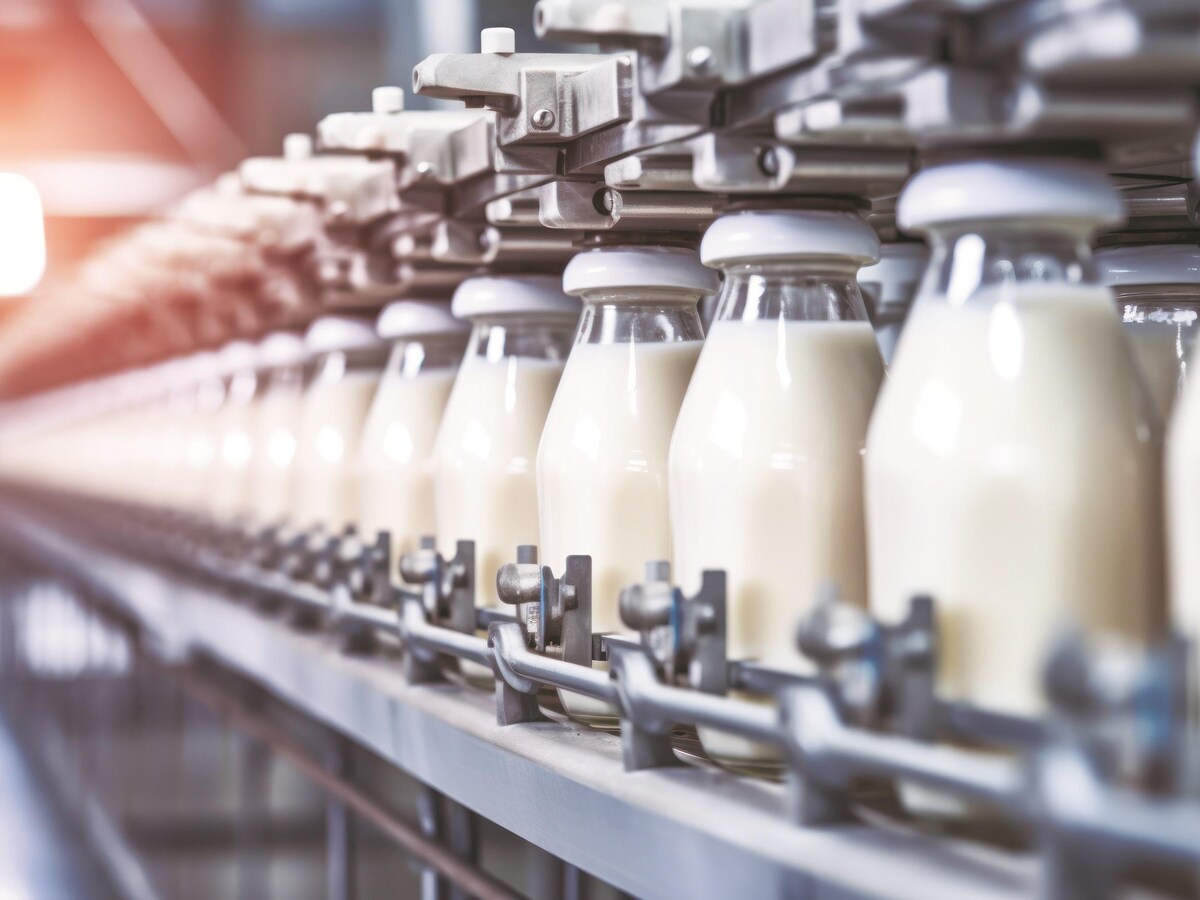
Image Credits: Business Standard
This increasing demand for dairy products has put immense pressure on farmers, supply chains, and dairy companies to scale up operations and improve efficiency. However, traditional dairy farming methods are unable to meet these challenges, especially in densely populated metropolitan areas where land and resources are scarce. This is where smart dairy farming comes into play.
What is Smart Dairy Farming?
Smart dairy farming integrates advanced technologies such as IoT (Internet of Things), AI-driven monitoring systems, robotics, and automated feeding systems to enhance milk production, improve animal welfare, and optimize the entire dairy supply chain. These systems collect real-time data on cattle health, feed consumption, milk yield, and environmental conditions, allowing farmers to make informed decisions.
In a typical Indian metropolis, where space and resources are limited, urban dairy farms can leverage these technologies to increase productivity while maintaining sustainability. Smart dairy farming can reduce the need for manual labor, improve animal welfare, and ensure the quality and safety of milk products—key factors in a highly regulated and consumer-conscious urban market.
The Role of Technology in Smart Dairy Farming
1. Automated Milking Systems (AMS):
In urban areas, manual milking can be time-consuming and labor-intensive. Automated milking systems (AMS) have become a game-changer, especially in cities where labor is expensive and dairy farms are smaller. AMS systems can milk cows more efficiently, reducing labor costs and increasing milk production by 10-15%.

2. IoT-based Sensors for Cattle Monitoring:
IoT sensors track the health, nutrition, and movement of cows, providing real-time data to dairy farmers. These sensors monitor important parameters such as body temperature, heart rate, and milk yield, helping detect early signs of illness or discomfort. In Indian cities, where animal welfare is increasingly becoming a priority, this technology ensures that cows are healthy and stress-free, leading to higher milk production and better quality. Cattle equipped with IoT devices have shown a 20-25% increase in milk yield.
3. Automated Feeding Systems:
In a typical Indian metropolis, where farm sizes are smaller and feed management is a critical challenge, automated feeding systems ensure that cows receive the right amount of feed at the right time. This not only reduces feed wastage but also optimizes the cow’s nutrition, improving milk production and reducing costs by up to 30%.
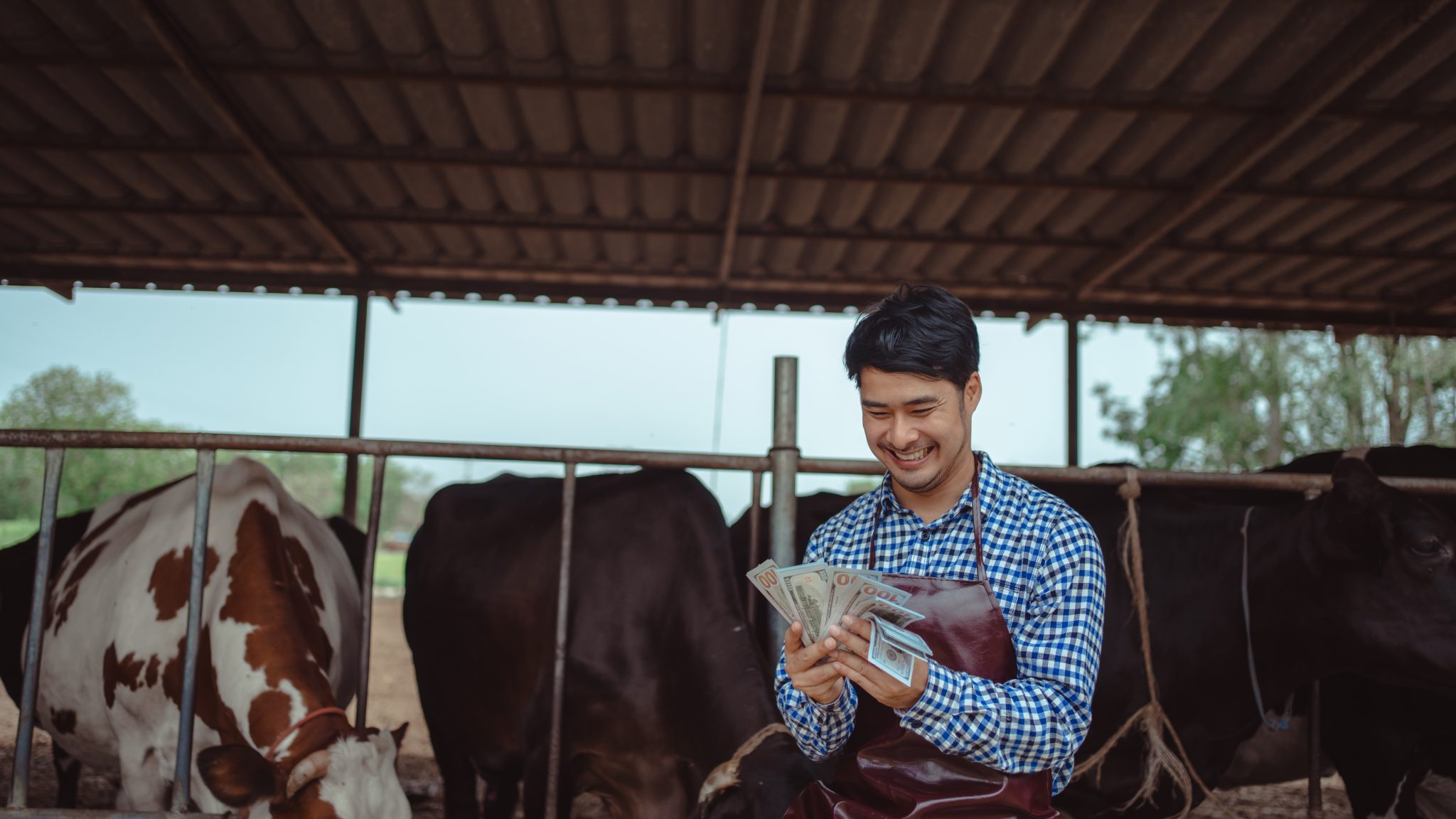
4. AI-driven Data Analytics:
AI and machine learning algorithms analyze the vast amount of data collected from sensors to provide actionable insights. For example, AI systems can predict the best time for milking, detect anomalies in milk yield, and even suggest dietary changes based on the cow’s health. This can improve overall herd management, increasing productivity by 15-20%.
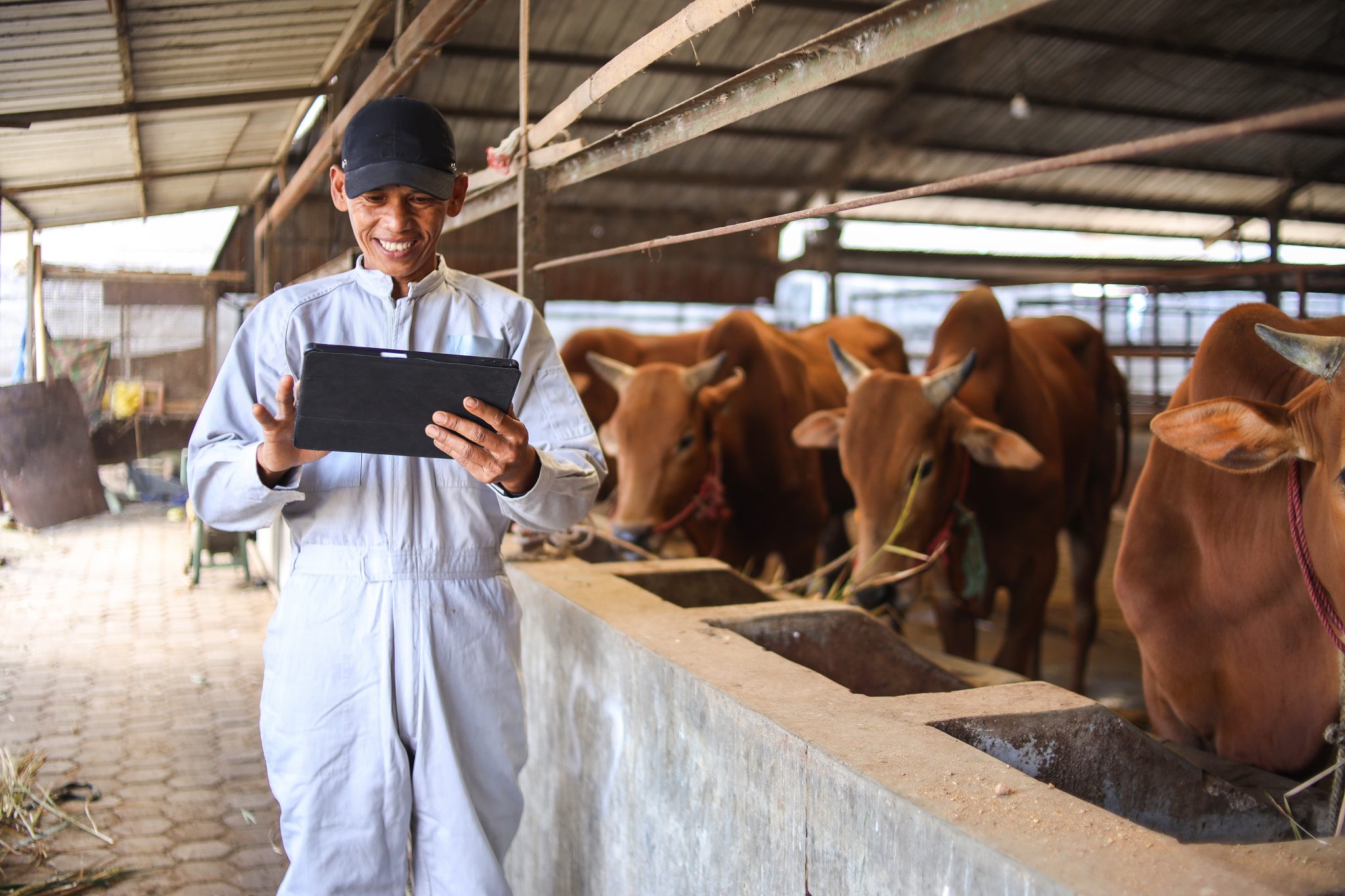
The Economic Impact of Smart Dairy Farming
By adopting smart technologies, Indian metropolitan dairy farms can improve efficiency and reduce costs. A study by the Indian Council of Agricultural Research (ICAR) found that smart dairy farms in urban areas saw a 30% reduction in labor costs and a 25% increase in milk yield. Moreover, the use of automated feeding and milking systems has reduced feed waste by 35%, further improving profitability.
Smart dairy farming also helps farmers meet the increasing demand for organic and A2 milk, particularly in affluent urban markets like Mumbai and Delhi. With automated systems ensuring consistent quality and hygiene, these farms can charge premium prices for their products, further boosting their bottom line.
The Future of Smart Dairy Farming in India
As India continues to urbanize, the demand for milk and dairy products will only grow. In cities like Delhi, Mumbai, Bengaluru, and Chennai, smart dairy farming offers a sustainable solution to meet this demand while ensuring animal welfare, food safety, and profitability. With continued investment in technology and infrastructure, Indian metropolises will lead the way in adopting smart farming practices, revolutionizing the dairy industry and securing the future of urban dairy production.
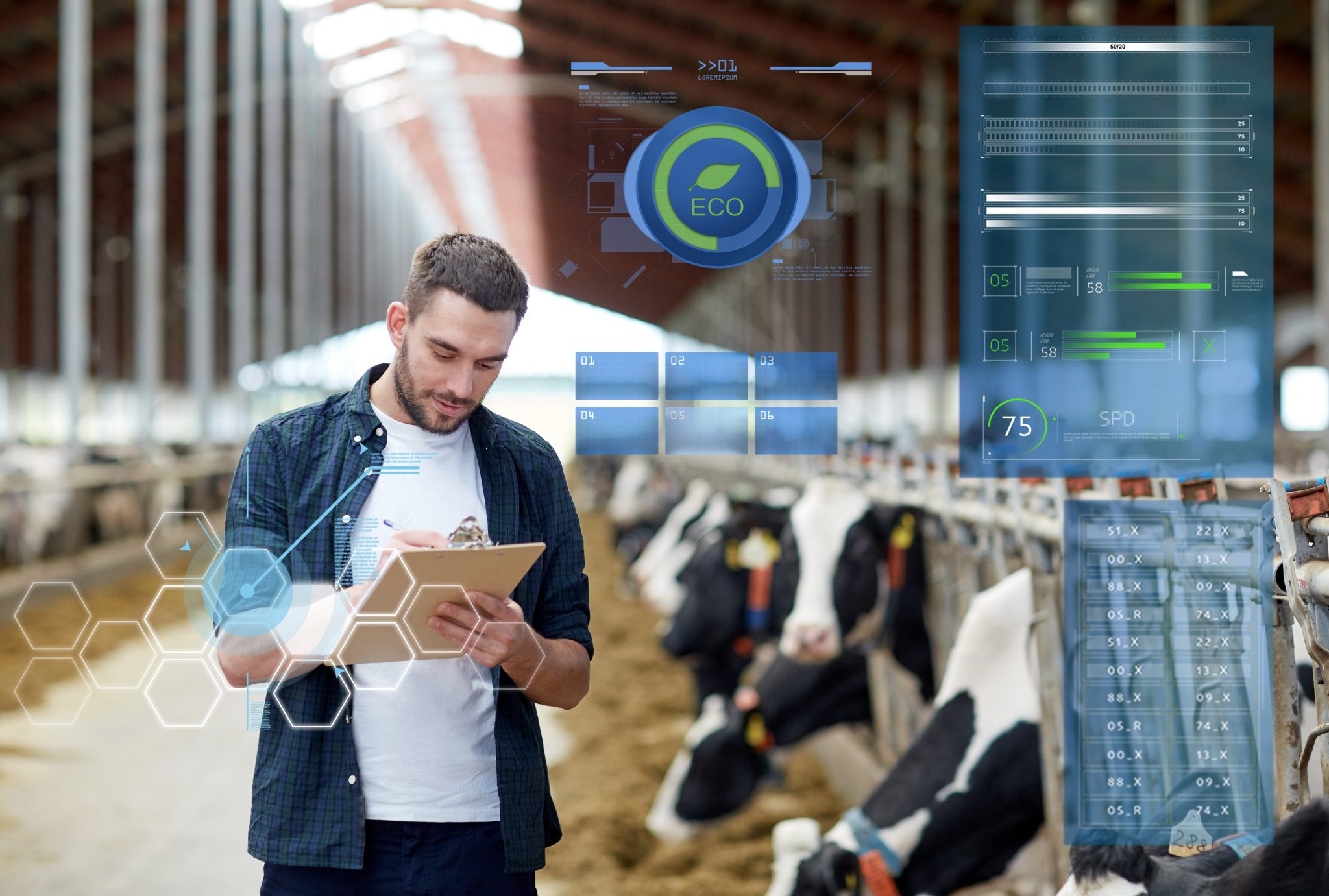
In India, small and marginal dairy farmers constitute a significant portion of the dairy industry. According to the National Sample Survey Office (NSSO) and data from the National Dairy Development Board (NDDB), small and marginal farmers own about 80% of the country’s dairy livestock. A substantial number of these farmers reside in or around urban and peri-urban areas, including Indian metropolises like Delhi, Mumbai, Bengaluru, and Chennai. In cities, they typically engage in dairy farming to supplement their income or cater to the local milk demand.
Estimate of Small Dairy Farmers in Indian Metropolises
Although exact numbers are difficult to pin down, various studies suggest that small and marginal dairy farmers in Indian metropolitan regions might account for a large proportion of dairy production. Some estimates indicate:
- Mumbai: About 60,000-70,000 small dairy farmers in peri-urban areas and the outskirts.
- Delhi NCR: Close to 80,000-100,000 small dairy farmers in semi-urban and rural areas that supply the city’s milk demands.
- Bengaluru: Around 40,000-50,000 small dairy farmers in nearby districts and outskirts.
- Chennai: An estimated 25,000-30,000 small dairy farmers in surrounding districts.
Challenges Faced by Small Dairy Farmers in Metropolises
Despite their importance, small dairy farmers face significant challenges in urban environments:
- Lack of access to markets: Small farmers often struggle to connect with larger urban markets due to fragmented supply chains.
- Poor infrastructure: Limited access to cold storage and transport affects the quality and shelf life of milk.
- Unorganized sector: Many small farmers operate independently, which makes it difficult to achieve economies of scale or negotiate better prices for their products.
- Lack of knowledge and technology: Small farmers often lack access to modern dairy farming practices, technology, and credit facilities, resulting in low productivity.
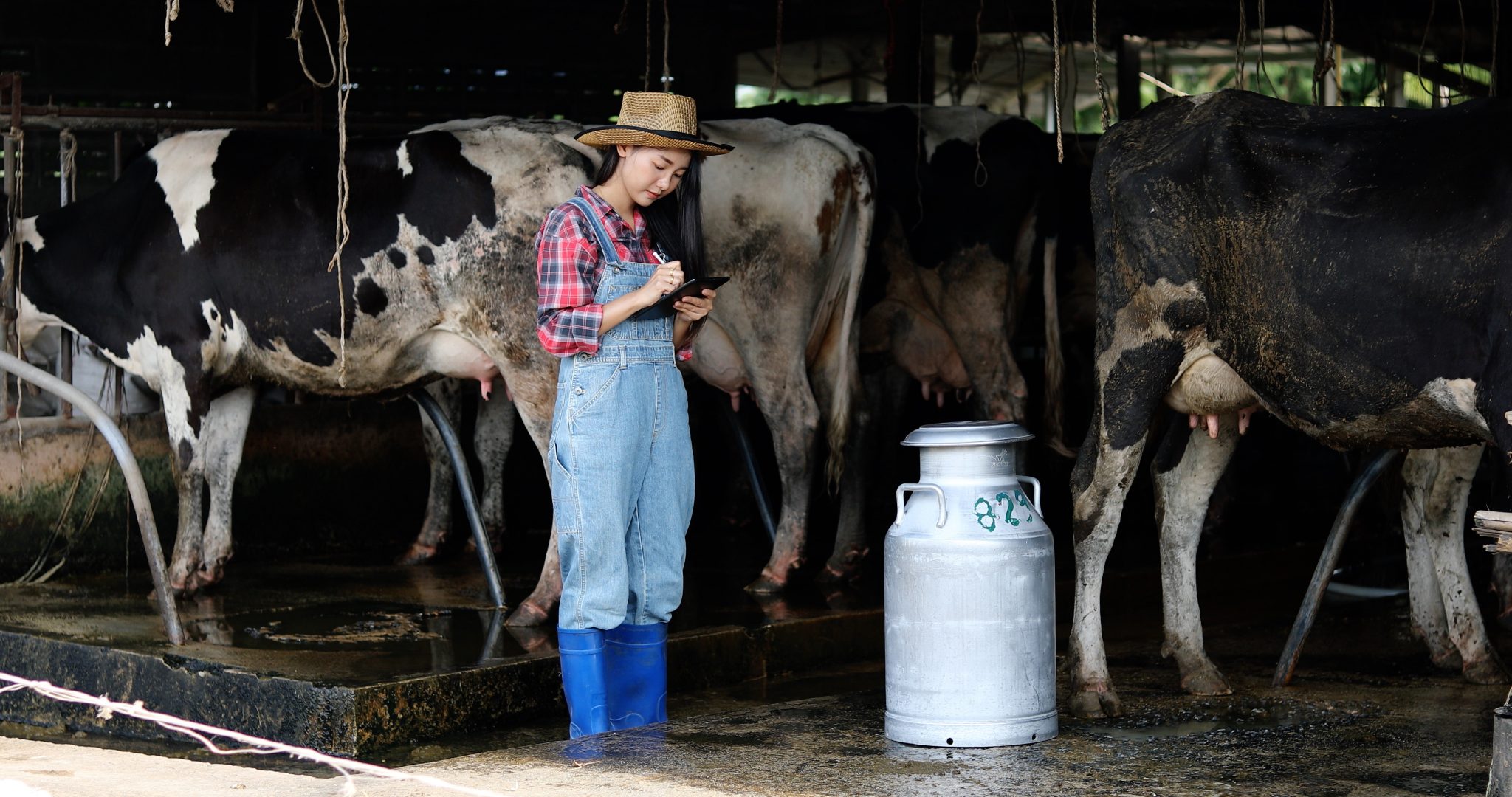
Bringing Small Dairy Farmers Under One Roof
To bring small and marginal dairy farmers under one cohesive network or platform in Indian metropolises, several models and strategies can be employed:
1. Cooperative Model
India’s dairy cooperative model has been highly successful, with Amul being the most notable example. In metropolises, forming cooperatives among small dairy farmers can:
- Provide collective bargaining power to farmers.
- Offer access to a structured market, ensuring fair prices for their milk.
- Facilitate training and access to modern dairy farming techniques, increasing productivity.
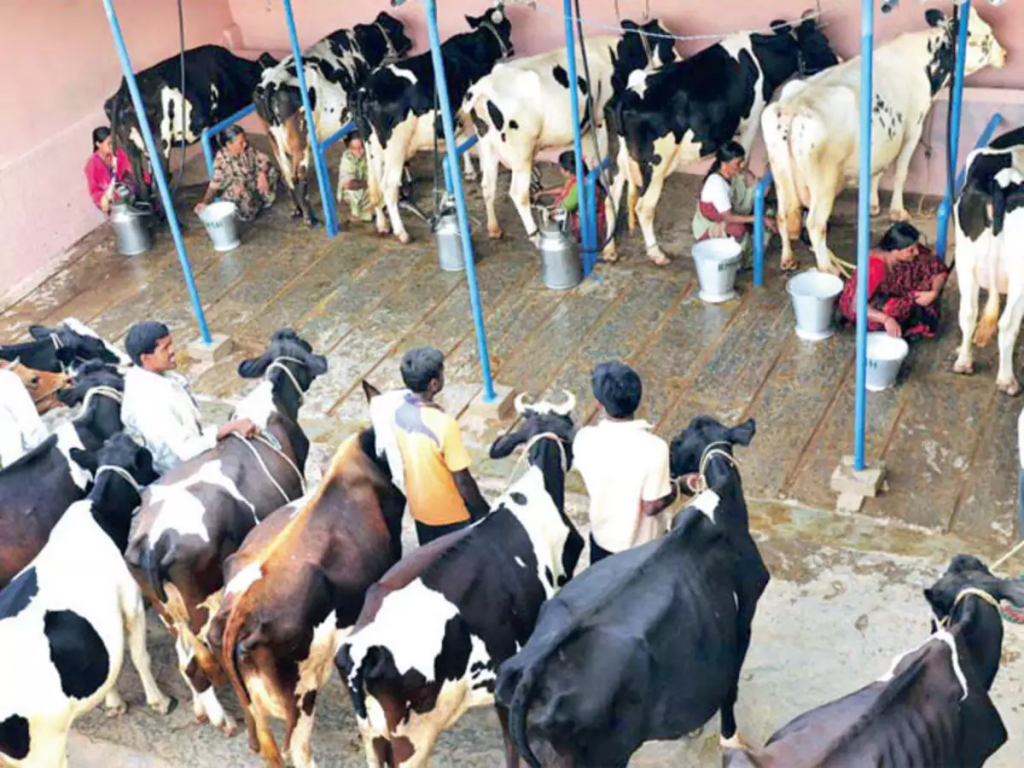
Image credits: The Economic Times
2. Dairy Producer Companies
Farmer Producer Organizations (FPOs) or Dairy Producer Companies (DPCs) are growing in popularity in India. These companies can help small farmers:
- Aggregate their milk output and streamline supply chains.
- Access technology and infrastructure, such as bulk milk coolers and automated milking systems.
- Provide training on best practices and facilitate access to financing.
The NDDB and organizations like Mother Dairy and Nandini have already promoted such initiatives, and their expansion into metropolitan areas can further streamline the integration of small dairy farmers.
3. Technology-Enabled Platforms
Digital platforms can play a key role in organizing small dairy farmers under one network. Using apps and IoT-based tools, small farmers can:
- Access real-time market data and connect with buyers in urban markets.
- Participate in digital milk cooperatives where they can pool resources and sell milk collectively.
- Use digital payment systems for fast and secure transactions.
Several startups in India, such as Stellapps and MooFarm, are already providing digital solutions for dairy farmers, including milk tracking, quality control, and market linkage, enabling small farmers to scale their operations and connect with larger markets.
4. Public-Private Partnerships (PPPs)
Partnerships between governments, private companies, and small dairy farmers can help in:
- Developing infrastructure such as cold chains and transport facilities.
- Providing access to credit for dairy infrastructure investments.
- Offering education and training programs on modern dairy practices, AI, and IoT-driven farming.
For example, partnerships with companies like Nestlé and Dairy Day can provide small farmers with technology and market access.
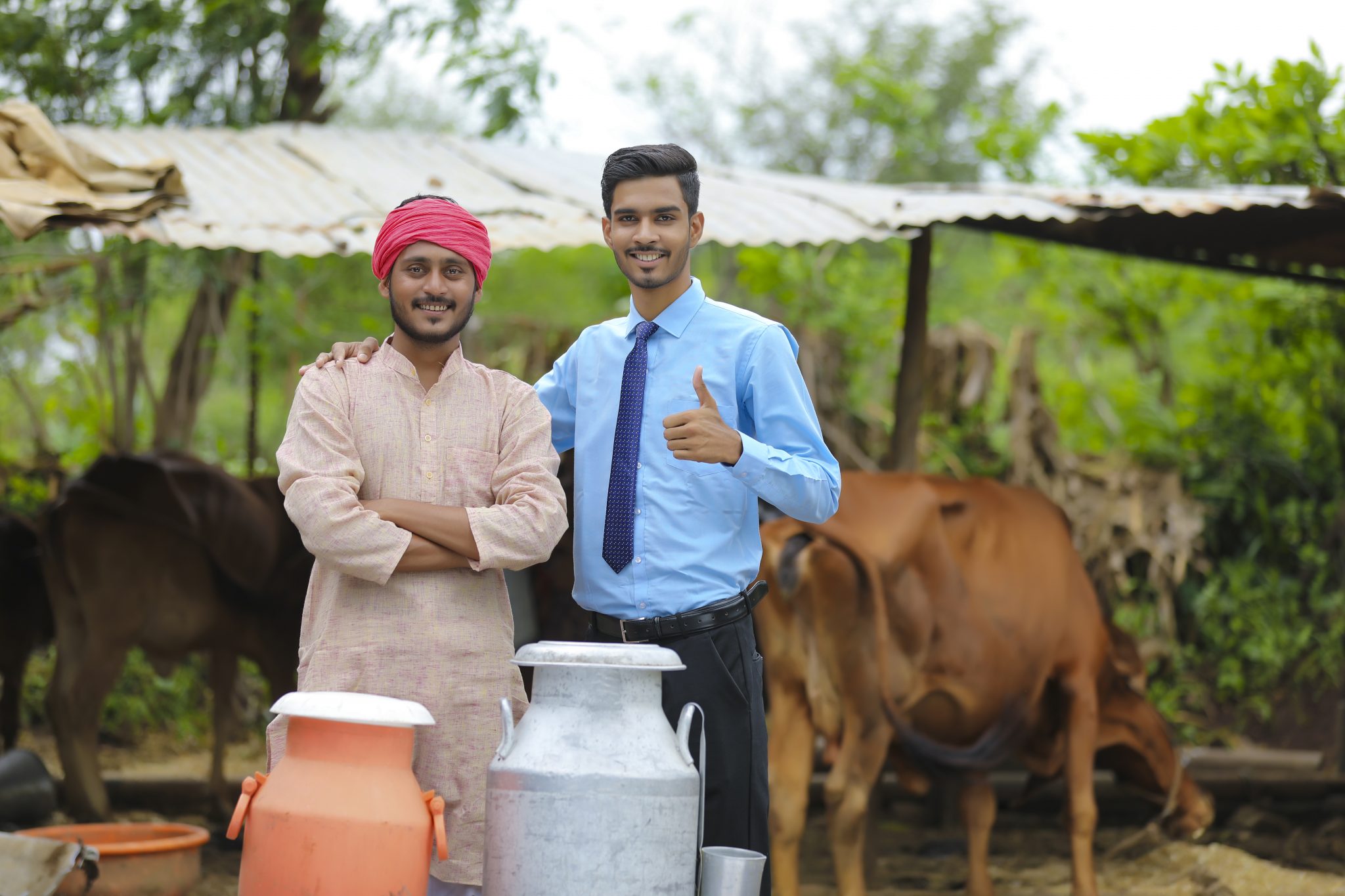
5. Urban Dairy Hubs
Creating urban dairy hubs or milk collection centers at the outskirts of cities can serve as aggregation points where small farmers can sell their milk. These hubs can:
- Be operated by cooperatives or dairy companies.
- Serve as centers for technological dissemination, training, and quality control.
- Provide logistics support to ensure milk is transported to urban areas efficiently.
Such hubs have already been successful in rural areas and can be replicated in peri-urban zones surrounding metropolitan cities.
India’s small and marginal dairy farmers are key players in the supply chain of urban milk demand, especially in cities like Delhi, Mumbai, and Bengaluru.
By leveraging cooperative models, digital platforms, technology solutions, and public-private partnerships, small farmers can be brought together under one cohesive structure.
This integration will not only improve their productivity and income but also ensure a steady and quality milk supply for growing metropolitan populations.
IS360 Can be Reached at
Sharing is caring!

